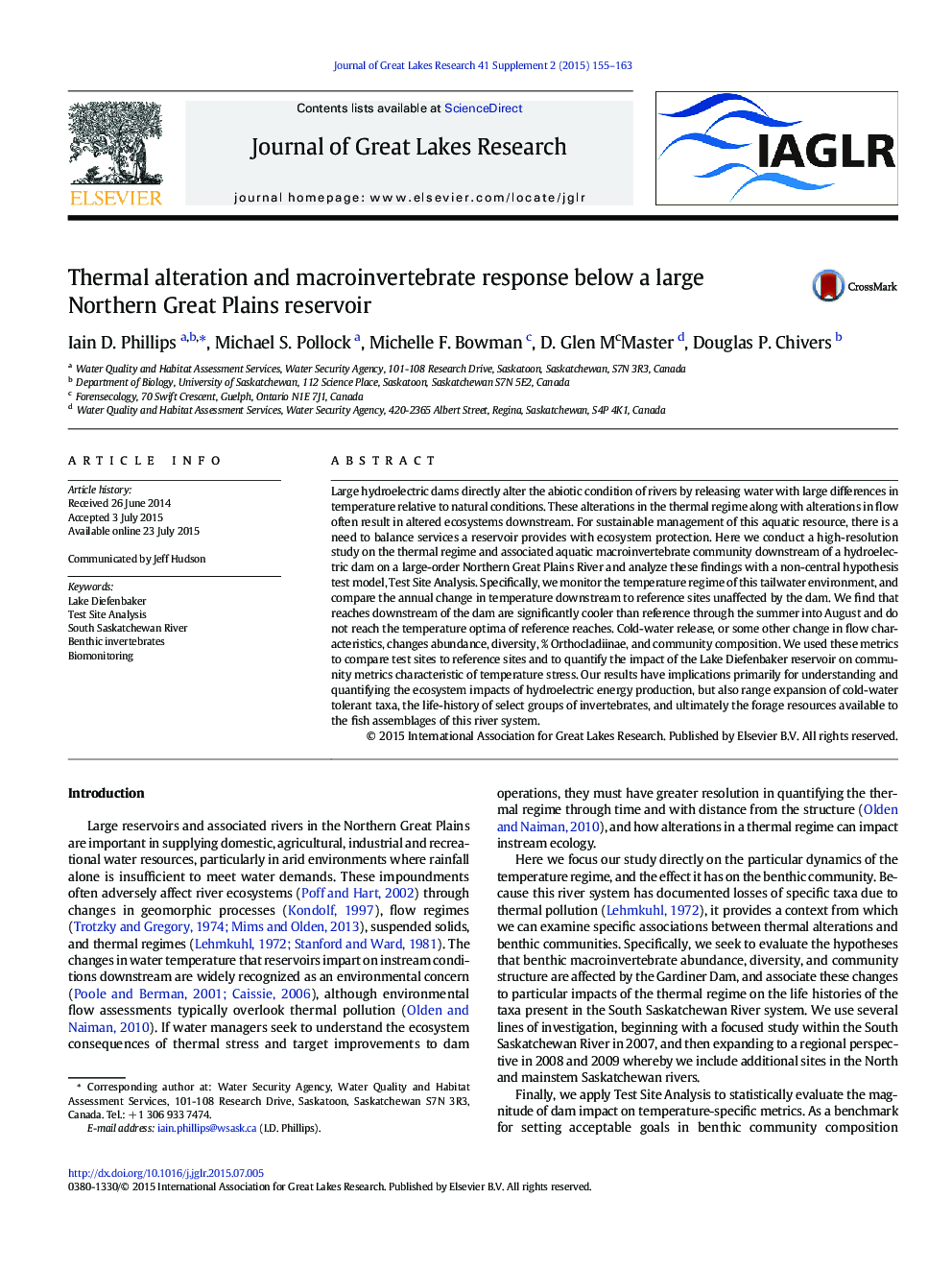| Article ID | Journal | Published Year | Pages | File Type |
|---|---|---|---|---|
| 6304822 | Journal of Great Lakes Research | 2015 | 9 Pages |
Abstract
Large hydroelectric dams directly alter the abiotic condition of rivers by releasing water with large differences in temperature relative to natural conditions. These alterations in the thermal regime along with alterations in flow often result in altered ecosystems downstream. For sustainable management of this aquatic resource, there is a need to balance services a reservoir provides with ecosystem protection. Here we conduct a high-resolution study on the thermal regime and associated aquatic macroinvertebrate community downstream of a hydroelectric dam on a large-order Northern Great Plains River and analyze these findings with a non-central hypothesis test model, Test Site Analysis. Specifically, we monitor the temperature regime of this tailwater environment, and compare the annual change in temperature downstream to reference sites unaffected by the dam. We find that reaches downstream of the dam are significantly cooler than reference through the summer into August and do not reach the temperature optima of reference reaches. Cold-water release, or some other change in flow characteristics, changes abundance, diversity, % Orthocladiinae, and community composition. We used these metrics to compare test sites to reference sites and to quantify the impact of the Lake Diefenbaker reservoir on community metrics characteristic of temperature stress. Our results have implications primarily for understanding and quantifying the ecosystem impacts of hydroelectric energy production, but also range expansion of cold-water tolerant taxa, the life-history of select groups of invertebrates, and ultimately the forage resources available to the fish assemblages of this river system.
Related Topics
Physical Sciences and Engineering
Earth and Planetary Sciences
Earth and Planetary Sciences (General)
Authors
Iain D. Phillips, Michael S. Pollock, Michelle F. Bowman, D. Glen McMaster, Douglas P. Chivers,
